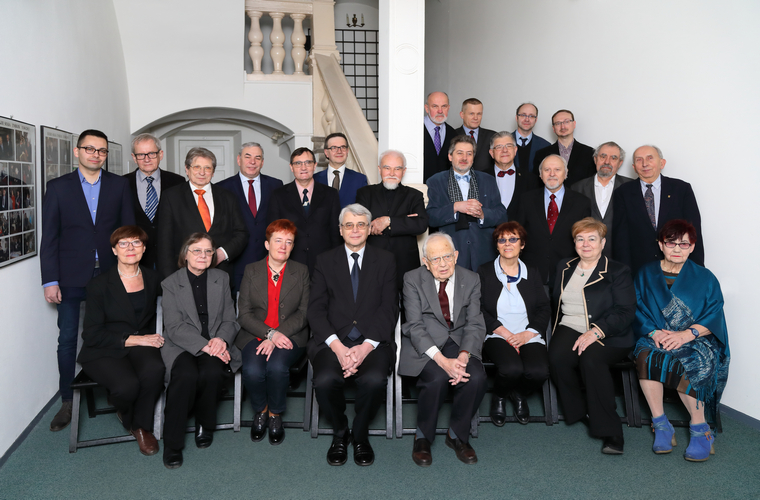The Society of Friends of Kraków History and Heritage (Towarzystwo Miłośników Historii i Zabytków Krakowa) is one of the oldest continuously-operating Polish non-governmental organisations. Its goal is to conduct academic studies in the history, art, and culture of Kraków, promote knowledge of Kraków, reinforce respect for the city’s tangible and intangible heritage, and care for their condition and protection. The Society has built, and continues to build, social capital in support of Kraków’s history and the effective and efficient protection of its cultural heritage.
On 6 January 1897 a group of academics, artists, cultural activists, and citizens of the city of Kraków approved the Statute of the TMHiZK at its first general assembly. From that moment on, the Society has gathered together people fascinated by Kraków, including the most eminent researchers of the history and culture of Poland’s ancient royal capital. The works published by the Society are the canon of knowledge about Kraków. During its history, the Society has repeatedly spoken up in the most important debates on the city and its heritage. Since the late 19th century, it has published the annual Rocznik Krakowski and the series Biblioteka Krakowska, literally “the library of Kraków”. From 1983, it has also published materials from academic sessions as Kraków w dziejach narodu: and from 1993 Fontes Cracovienses with the sources on the history of Kraków.
The Society of Friends of Kraków History and Heritage owns a historical townhouse at św. Jana 12 which was donated by one of its founding fathers, Klemens Bąkowski, before the Second World War. Since 1995 the society has presented the Klemens Bąkowski Award for services to academic work and activities supporting Kraków and its heritage. Every week it organises academic lectures on subjects connected to Kraków, and once a year it runs the “Kraków in the History of the Nation” (Polish: “Kraków w dziejach narodu”) academic session.
According to the Statute, the supreme authority of the Society is its General Assembly, and its activities are managed by the Board which is headed by the elected President. Members of the Society participate actively in the work of other academic and cultural institutions and organisations. Since 1990 the Society has been a member of Europa Nostra, and the President of the Society of Friends of Kraków History and Heritage, Professor Jacek Purchla, is a member of the Council of Europa Nostra of long standing, and was elected its vice-president in 2018.

